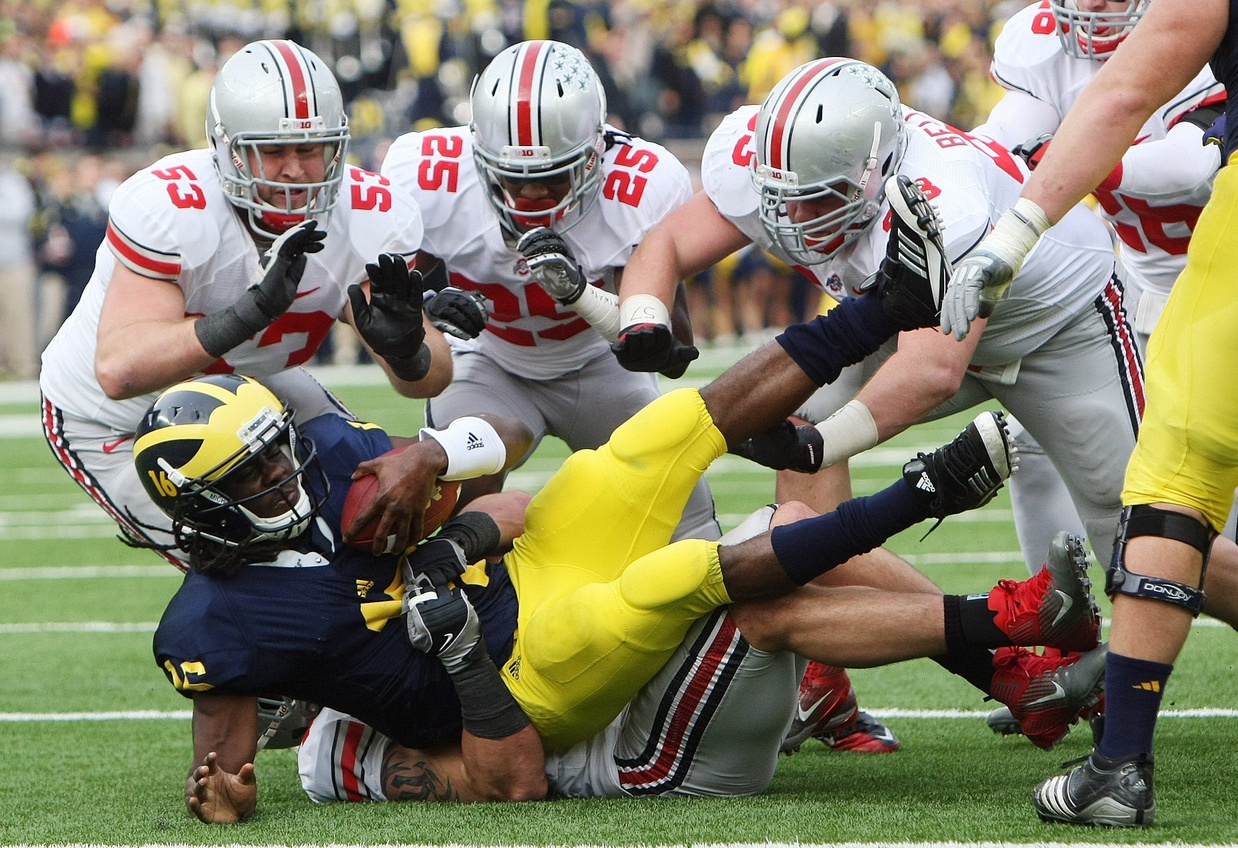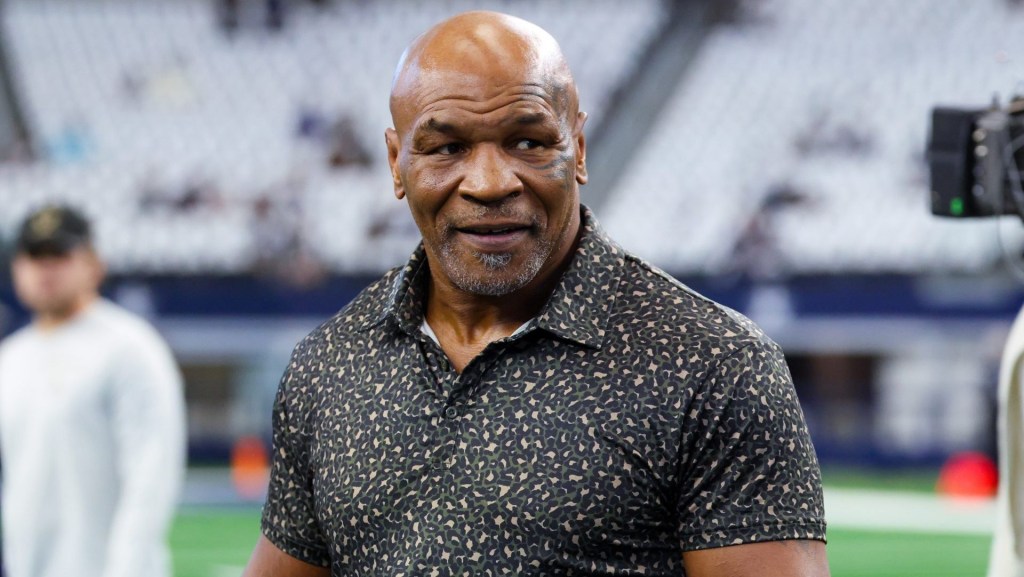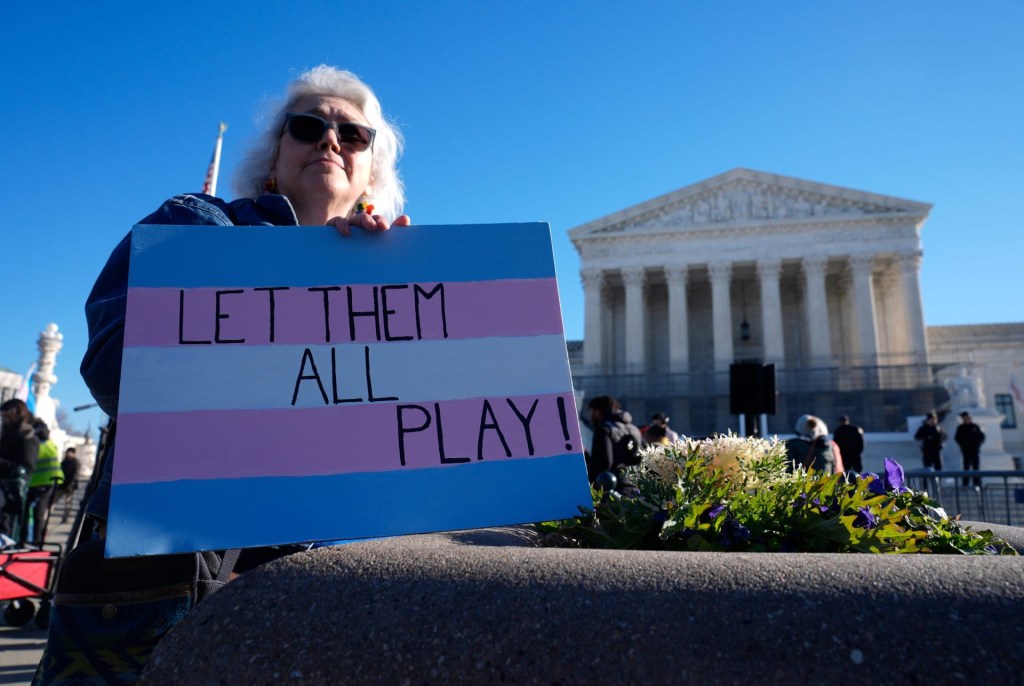The NCAA, Big Ten Conference, and its television network are seeking dismissal of a lawsuit brought against them by more than 300 former University of Michigan football players.
The motion, which was filed in the Eastern District of Michigan on Jan. 13, is over a suit brought in September by former Wolverines seeking $50 million for continued use of the players’ NIL (name, image, and likeness) on TV.
Wolverines legends, including Braylon Edwards, Denard Robinson, Michael Martin, and Shawn Crable, initially filed the case in September. They have since been joined by hundreds of fellow former players from 1969 to 2015, who are all seeking compensation for what they allege is decades of unlawful NIL use without compensation, including merchandise sales and ongoing rebroadcasts of games they played in.
The group of former Michigan players is being represented by Jim Acho, who has successfully represented former MLB and NFL players in similar suits.
The players in the suit are ineligible for the pending House v. NCAA settlement that is likely to distribute $20 million to athletes who began competing in Division I college sports from 2016 through September 2024.
The lawsuit states the NCAA, Big Ten, and the Big Ten Network have made money off the performances of former Michigan football players by “broadcasting, advertising, and selling merchandise featuring their performances” without their consent or financial compensation.
It also alleges the players were denied the ability to monetize their own name, image, and likeness, even though the NCAA knew it violated antitrust law, Acho says.
The plaintiffs have named a spokesperson for each decade of the five decades represented in the suit, with 17-year NFL veteran and longtime NFL Players Association president Mike Kenn serving as the spokesperson for the 1970s. Acho said Michigan legend Tom Brady, who starred for the Wolverines in the late 1990s is not involved in the lawsuit and pointed to Fox Sports, where Brady calls NFL games, owning the Big Ten Network as a likely reason, giving the NFL analyst a conflict of interest in the case.
The NCAA, Big Ten, and its network argue the case should be dropped “for failure to state a claim upon which relief can be granted,” suggesting the plaintiffs’ claims are baseless. They say the statute of limitations on the plaintiffs’ claims have long expired. Antitrust claims have a four-year statute of limitations. The motion also argues the plaintiffs were members of the O’Bannon v. NCAA case, which “resolved a challenge to NCAA rules regarding compensation for use of student athletes’ alleged NIL ‘in game footage or in video games’ both during and after their college eligibility.”
Acho told Front Office Sports he does not expect the judge to dismiss the case based on defendants’ reasoning.
“I knew they would bring those motions because they’ve brought them in every motion that’s been filed,” Acho says. “Statute of limitations is always the fallback, but I think we can get around it because they continue to air these games. When I filed the lawsuit a lot of that stopped. They know exactly what they’re doing. All of this stuff predates 2016.”
Attorneys for the NCAA, Big Ten, and Big Ten Network did not immediately respond to a request for comment.
Acho’s lawsuit is similar to others filed against the NCAA for unpaid NIL, including the 1983 North Carolina State championship men’s basketball team, Reggie Bush, former Ohio State quarterback Terrelle Pryor, and Kansas legend Mario Chalmers. On Monday, NCAA attorneys were in court arguing for Chalmers’s case, which includes former Arizona and NBA star Jason Terry, to be dismissed on similar grounds.
While the cases were not specifically named, the courts in which those cases have been filed are referred to in the motion, which is why Acho predicts all the cases could be lumped into another massive settlement, similar to House v. NCAA. Acho said he understands the NCAA’s desire to transfer the case to the same court as similar lawsuits, but he plans to fight that.
“All the [merchandising] contracts were agreed to in Michigan,” Acho says. “A lot of former players are in Michigan. I think the case belongs in Michigan.
“My expectation is we will win the motion to dismiss. We have a tougher road to transfer the case to New York, but I still think we have a chance to win that,” Acho says.





![[Subscription Customers Only] Jul 13, 2025; East Rutherford, New Jersey, USA; Chelsea FC midfielder Cole Palmer (10) celebrates winning the final of the 2025 FIFA Club World Cup at MetLife Stadium](https://frontofficesports.com/wp-content/uploads/2026/02/USATSI_26636703-scaled-e1770932227605.jpg?quality=100&w=1024)











